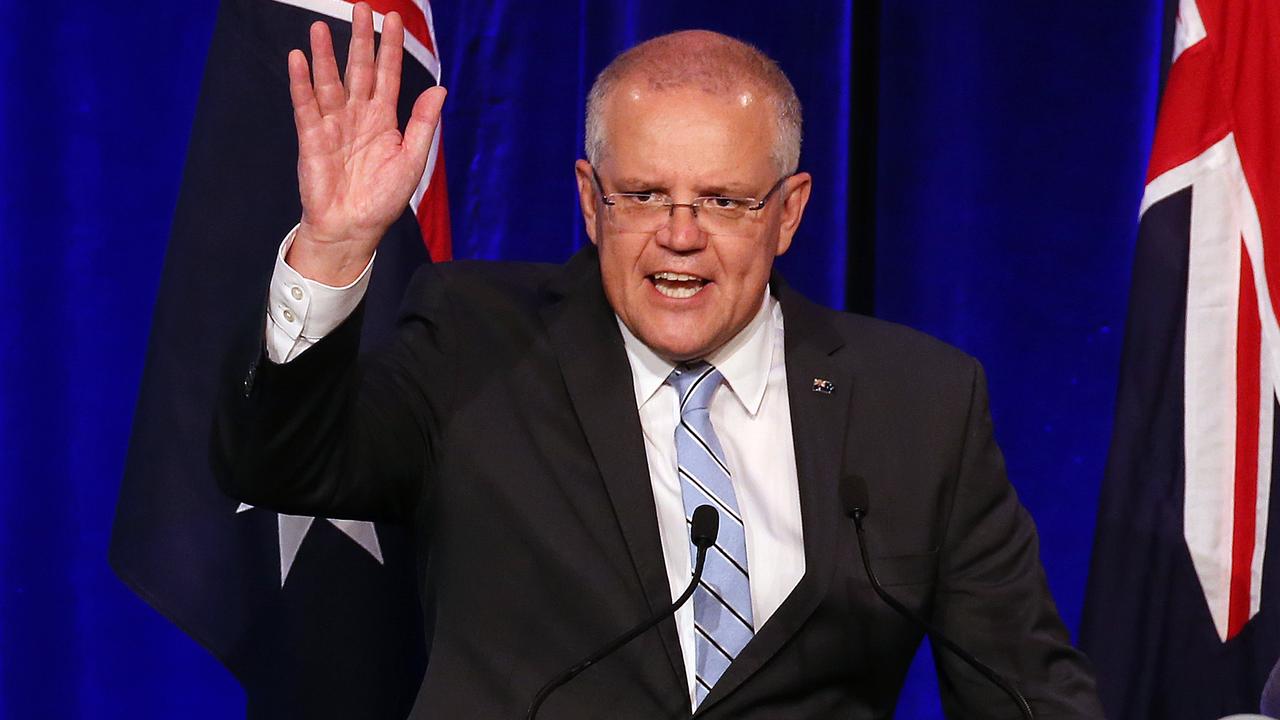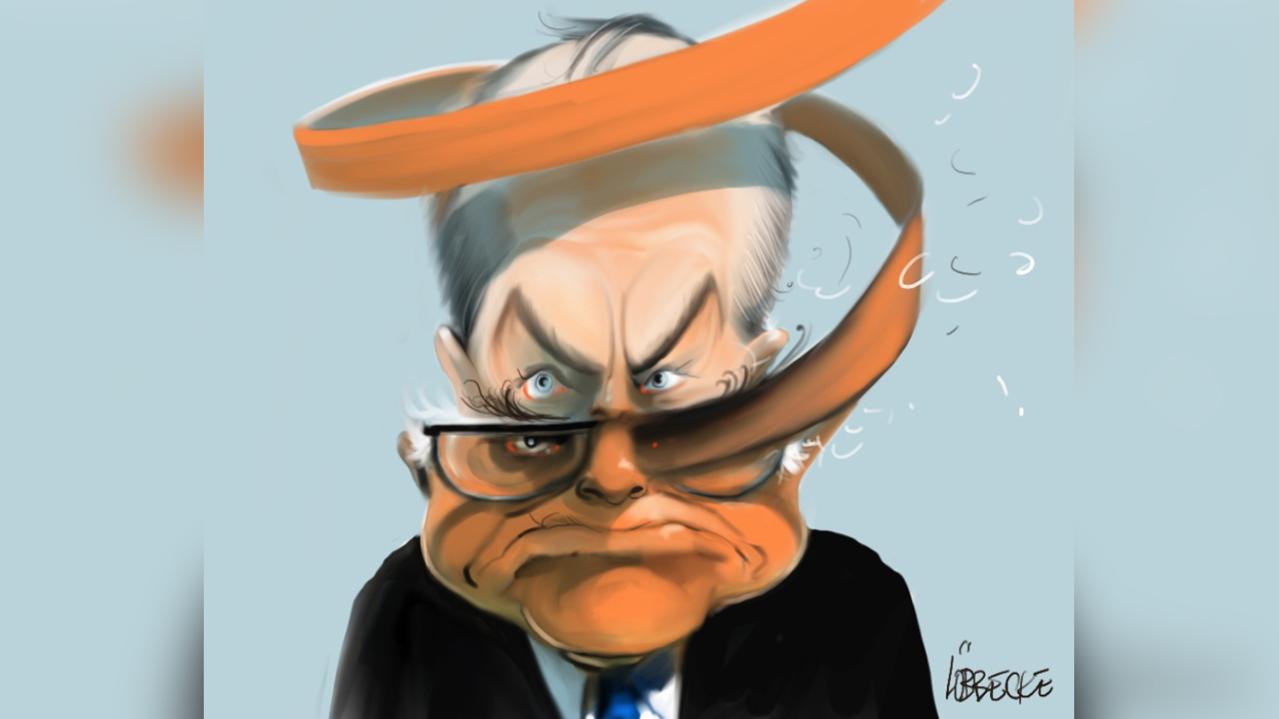Compromised Abbott must learn to pander to Palmer

A MID-WEEK breakfast meeting with Clive Palmer, described by Tony Abbott’s office as genial, was a precursor to new senators taking their seats on Tuesday, after which time the Palmer United Party becomes pivotal to the Coalition’s ability to govern.
The Prime Minister had better get used to demeaning himself in such a way: meeting a man who viciously attacked his loyal chief of staff just weeks ago.
Both men suggested that Thursday’s meeting would be the first of many more to come. It reminds me of the regular meetings Julia Gillard was forced to endure with Greens leader Bob Brown to hold her minority government together. Only Brown never personally insulted Gillard the way Palmer has hurled abuse at team Abbott.
Compromise is part and parcel of politics, but those who seek to engage in the delicate art need to be careful they don’t become compromised themselves. Abbott needs Palmer to enact legislation, but Palmer will use his meetings with Abbott to build legitimacy within the body politic and across the wider electorate. The risk for Abbott is that in seeking to enact his first-term agenda he will help entrench a new third force on the Right of the political spectrum.
There are risks for Palmer too. He needs to be careful not to compromise in ways that threaten the electoral viability of his party.
The Australian Democrats put good Senate practice first by waving through an amended GST before the 2001 election. But six years later they were extinguished as a parliamentary force. Protest voters don’t always like minor parties that seek to use the Senate for its designated purpose, as a house of review. John Howard used to say that there was no point sacrificing policy outcomes for policy purity. It is better to achieve 80 per cent of what one set out to do by compromise than nothing at all by standing ideologically firm.
The budget challenges in the Senate may see the Coalition fall short of the 80 per cent goal, but the former PM’s point remains true. The difficulty for Abbott and his finance team is that their rhetoric about the budget hasn’t left much room for compromise.
One compromise Abbott certainly won’t mind, at least in the short term, is his $2 billion-plus “direct action’’ plan being consigned to the dustbin of history as the price Palmer demanded for repealing the carbon tax.
Abbott always viewed direct action as a necessary evil: a waste of taxpayers’ dollars, to be sure. The government, via a slush fund, would pick environmental winners by doling out wads of cash here, there and everywhere.
It was a compromise Abbott was required to make after wresting the leadership off Malcolm Turnbull and canning the Liberal Party’s support for an emissions trading scheme. Without some sort of plan for action on climate change Liberal moderates would have remained hostile to Abbott, and Greg Hunt certainly couldn’t have stayed on as shadow climate change spokesman, which might have fractured the party further and undermined Abbott’s credibility on climate change.
Don’t forget that while high-profile barrackers for the now Prime Minister within the commentariat may think climate change is crap, Abbott has continuously sought to distance himself from his previous similar remarks to capture the political Centre. Palmer has done the dirty work for Abbott, bizarrely with the help of former US vice-president Al Gore.
We will soon see the carbon tax scrapped, but direct action won’t be legislated and neither will an ETS. Australia won’t have a climate change policy, or at least not one enacted via legislation. And Abbott hasn’t had to can direct action himself to save money as Palmer has done it for him.
Speaking of compromised, where does all of this leave Environment Minister Hunt? One of the more intelligent members of the government, his political credibility by year’s end could be all but shot to pieces. No ETS (which he advocated when Turnbull and Howard were Liberal leaders), no carbon tax (which he alluded to in his university thesis: A tax to make the polluter pay) and probably no direct action (because, rest assured, Abbott won’t take that policy to a double-dissolution election once the carbon tax is abolished).
Throw in Hunt having been rolled internally on his aim to revive solar panel rebates and rolled by Palmer on his attempts to abolish the Clean Energy Finance Corporation, and soon enough the Coalition is likely to walk away from its renewable energy target pledge. At what point does an erudite, passionate and family oriented politician decide that sitting impotently in the cabinet room isn’t reason enough to spend so many weeks and months away from home, serving a government that is fast becoming the antithesis of what he would like it to be?
Hunt isn’t alone in having compromised himself to remain part of team Abbott.
The banner-waving Christian Scott Morrison uses poor conditions in offshore processing facilities as a disincentive for people to seek asylum in this country, while offering inducements for genuine refugees to go back to hell-holes such as Iraq, with scant regard for their safety.
Industry Minister Ian Macfarlane loses every industry assistance battle in cabinet yet seeks to prolong his less than illustrious ministerial career before Abbott cuts it off in the next reshuffle.
Attorney-General George Brandis would often quote Alfred Deakin as the spiritual leader of liberalism, citing him above all others as pivotal to the philosophical direction the party should take.
Now, in a bid to appeal to strong conservative forces in the Senate as part of his onward push for the Senate leadership, Brandis seeks to articulate why it should be OK to humiliate someone based on their race in the name of free speech, as part of his proposed amendments to section 18C of the Racial Discrimination Act.
At least the likes of Joe Hockey, Health Minister Peter Dutton and Education Minister Christopher Pyne are seeking to fulfil their philosophical purposes for entering politics. Each believes in the policy goals they are pursuing as ministers. We wait with interest to see how the PM’s compromised meetings with Palmer affect what this triumvirate of purpose within the cabinet seeks to achieve as part of an Abbott government.
Peter van Onselen is a professor at the University of Western Australia.


